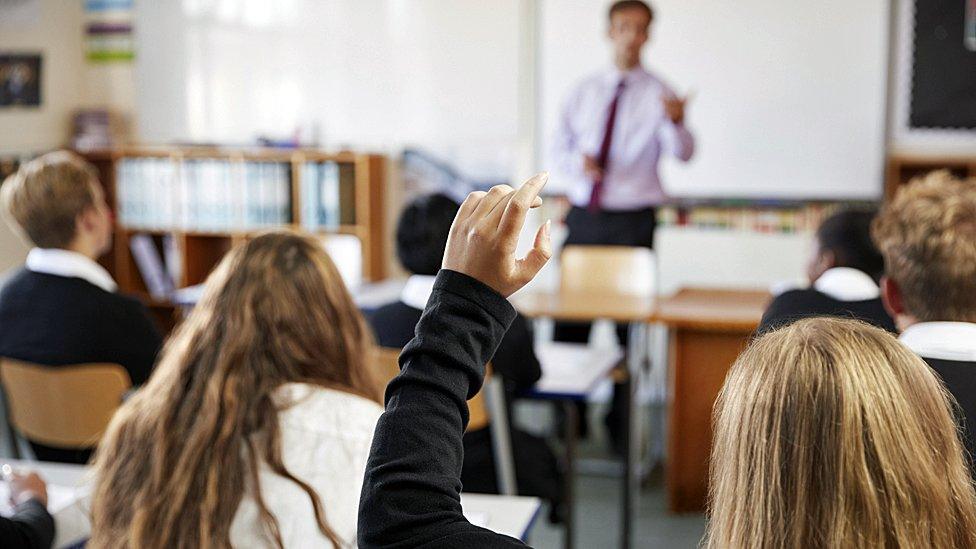Antisemitism complaints double at London universities, charity says
- Published
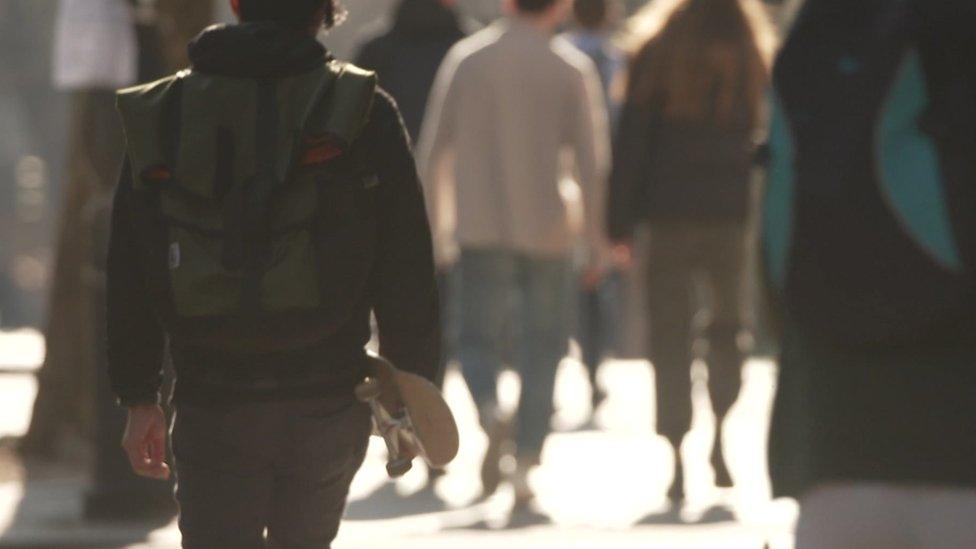
Allegations of antisemitism incidents related to London's universities have more than doubled, a report by the Community Security Trust (CST), external reveals.
Across the UK, the CST received reports of 150 incidents across the 2020-21 and 2021-22 academic years.
Of those, a fifth were connected to London, including four involving Queen Mary, University of London.
A Queen Mary spokesperson said it had a "zero-tolerance approach to any form of racial bullying and harassment".
The report found that antisemitism incidents related to the capital's universities more than doubled compared with the previous two-year period, when 12 incidents were reported to the CST.
The figures follow a report released earlier this month which found the National Union of Students failed to sufficiently challenge antisemitism and hostility towards Jews.
The CST, a charity which aims to protect British Jews from antisemitism and related threats, said 30 incidents were related to 10 institutions in the capital:
12 at University College London
4 at Queen Mary University of London
4 at Brunel University
4 at London South Bank University
2 at Royal Holloway
1 at City University
1 at Imperial College London
1 at St George's University of London
1 at the University of the Arts London
Dave Rich, head of policy at the CST, said: "We recorded more antisemitic incidents related to university campuses in London than anywhere else, and that is partly because of the number of universities and number of students in London."
One of the incidents cited in the report happened at Royal Holloway, University of London, in May 2021, when a poster of an Israeli flag with a swastika replacing the Star of David was placed on the entrance of a library on campus. Two arrests were made in connection with this incident.
In a statement to the BBC, a spokesperson for the university said it "abhors violence, discrimination, harassment, and antisemitism".
The statement added: "In May 2021, we witnessed unacceptable behaviour on our campus and online with regards to antisemitism and immediately reported it to the police who took swift action and arrests were made.
"After the incident, staff met with members of the university's Jewish Society to speak to them about the impact the incident had on them and specialist support was provided by our Wellbeing team."
'Death threats'
Elliot Berke, 21, a Jewish student from Hendon, north London, who is studying at Queen Mary University of London, said: "I've been walking on campus and simply because I'm wearing my kippah people will come up to me and just kind of disdainfully ask my beliefs or about my religion in kind of an accusatory tone."
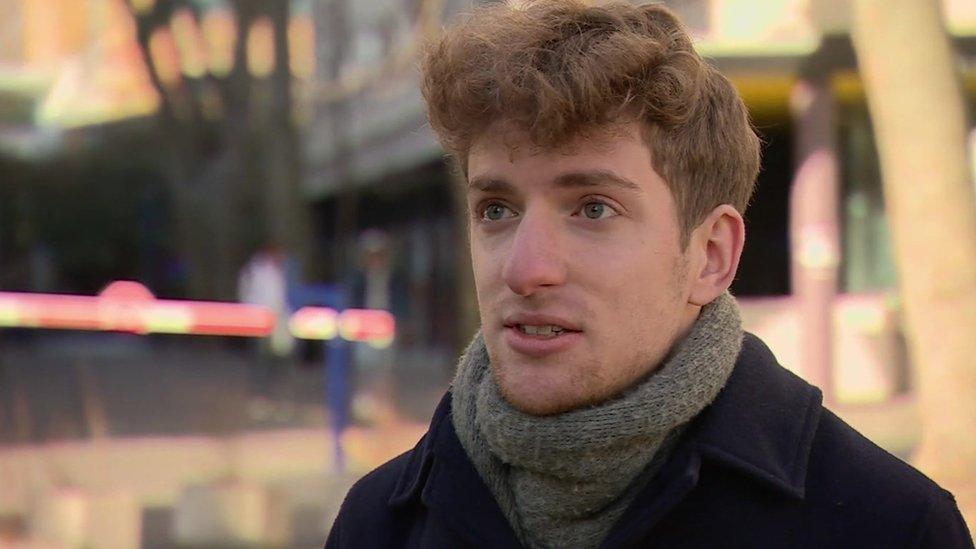
Elliot Berke said the rise in antisemitic abuse had "made a lot of people, including myself, wary of showing our identity on campus"
Mr Berke, the former vice-president of the university's Jewish society, said: "My friends have been sent death threats. There's been kind of a lot of questioning around people's beliefs simply because they are Jewish, and events we've had to postpone or move or cancel or hide the location of that event simply to avoid being targeted."
He said a lot of students felt "isolated, kind of let down by the university body", adding: "It's quite terrifying to see how normalised it's become, and I think it's made a lot of people, including myself, wary of showing our identity on campus."
Mr Rich said that while many of the incidents happened online they were no less serious, adding: "If you're a student living away from home and you suddenly find that the online spaces - the Facebook groups or the Instagram chats where all your friends and all your peers are - are full of antisemitism, that you personally are getting abused and threatened through these channels, then it feels very real and it has a very real impact on your life."
The CST believes many incidents experienced by students go unreported, Mr Rich said. He told the BBC: "What we're seeing is just a snapshot of what is reported, and probably the figures therefore only give you a feel of the tip of the iceberg of what's actually happening," he said.
A Queen Mary University of London spokesperson said: "Queen Mary is committed to maintaining a truly inclusive environment for all our students, staff and visitors.
"We have a zero-tolerance approach to any form of racial bullying and harassment, including antisemitism. We have robust procedures in place to fully investigate any form of racial bullying and harassment, which we strongly urge students and staff to use."
'Firm action'
A University College London spokesperson said in a statement: "We thoroughly condemn racism and prejudice in all its forms, and are deeply concerned and saddened by the reports of antisemitism.
"We encourage all members of our community to report any concerns or incidents of racism, including all forms of antisemitism, to UCL's Report + Support tool, which can be done anonymously. We will take firm action against anyone who is found to have carried out any form of discrimination."
The spokesperson for the Royal Holloway said in their statement to the BBC that the university had "robust conduct regulations in place to tackle any racial harassment and racism".
They added: "If any matter arises where our students or colleagues are victims of harassment, discrimination or violence in any form, we will support them to make sure Royal Holloway is a safe and inclusive campus for all."
A Brunel University spokesperson said: "Antisemitism has no place in the Brunel community, and we are intent on providing an inclusive and safe environment for all our students. We thoroughly investigate any incident of hateful behaviour reported to us, and take all such reports very seriously."
University of the Arts London said it was unable to comment as it could not provide information about individual cases.
London South Bank University, City University, Imperial College London, and St George's University of London have all been contacted for a response.

Follow BBC London on Facebook, external, Twitter , externaland Instagram, external. Send your story ideas to hellobbclondon@bbc.co.uk, external
- Published12 January 2023
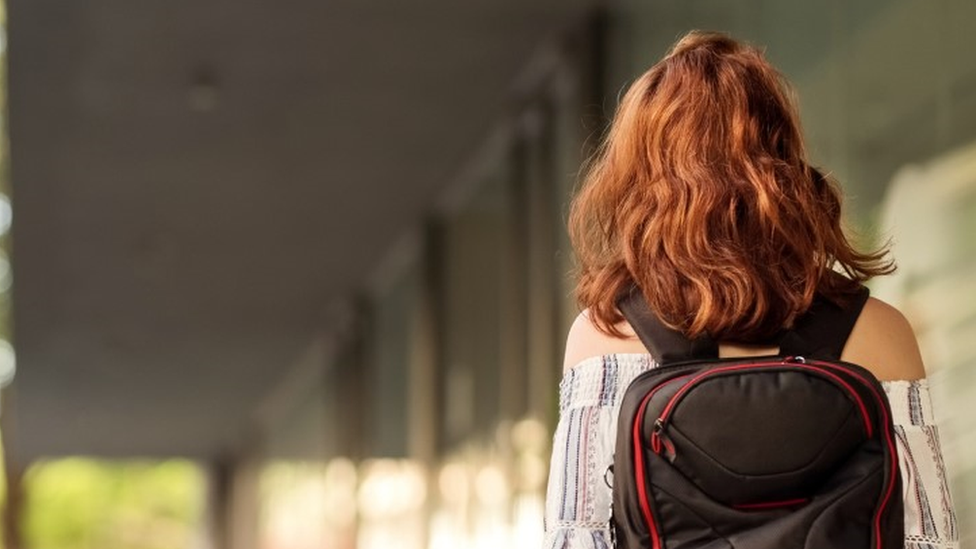
- Published10 February 2022
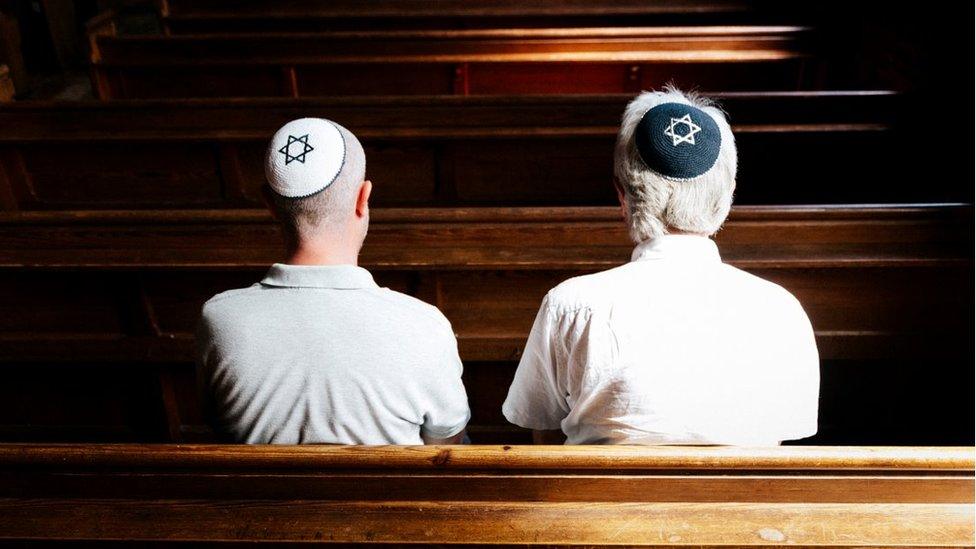
- Published19 December 2022
